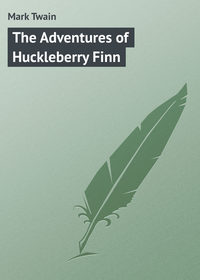Kitabı oku: «The Adventures of Huckleberry Finn», sayfa 19
Bir şeyler ters gitti, lütfen daha sonra tekrar deneyin
Türler ve etiketler
Yaş sınırı:
12+Litres'teki yayın tarihi:
10 haziran 2018Hacim:
360 s. 1 illüstrasyonTelif hakkı:
Public Domain